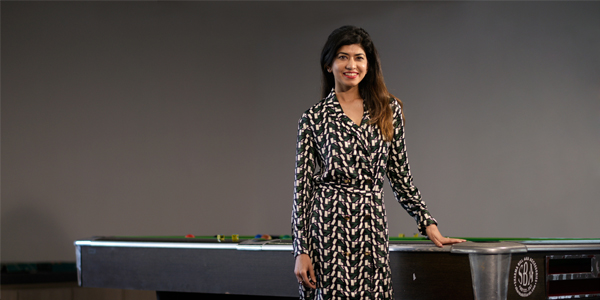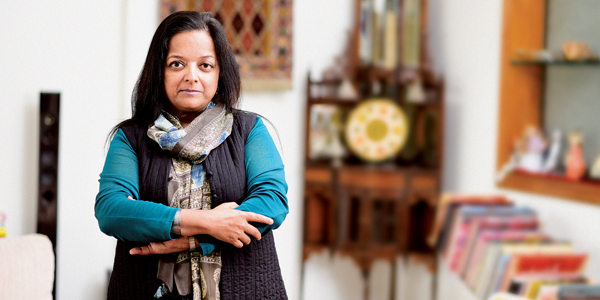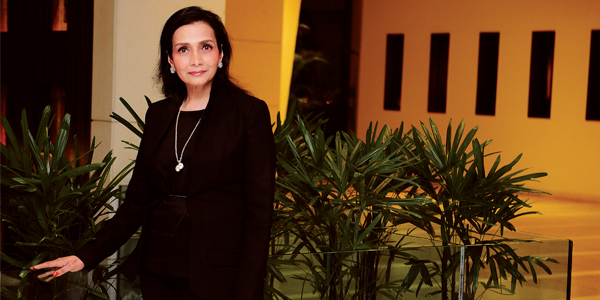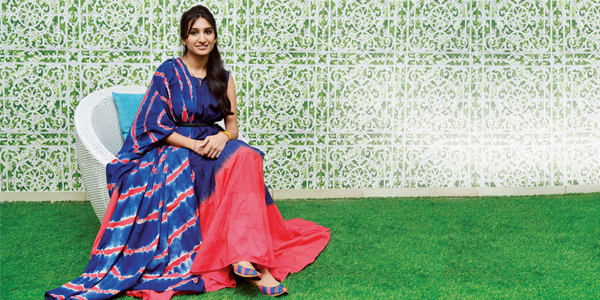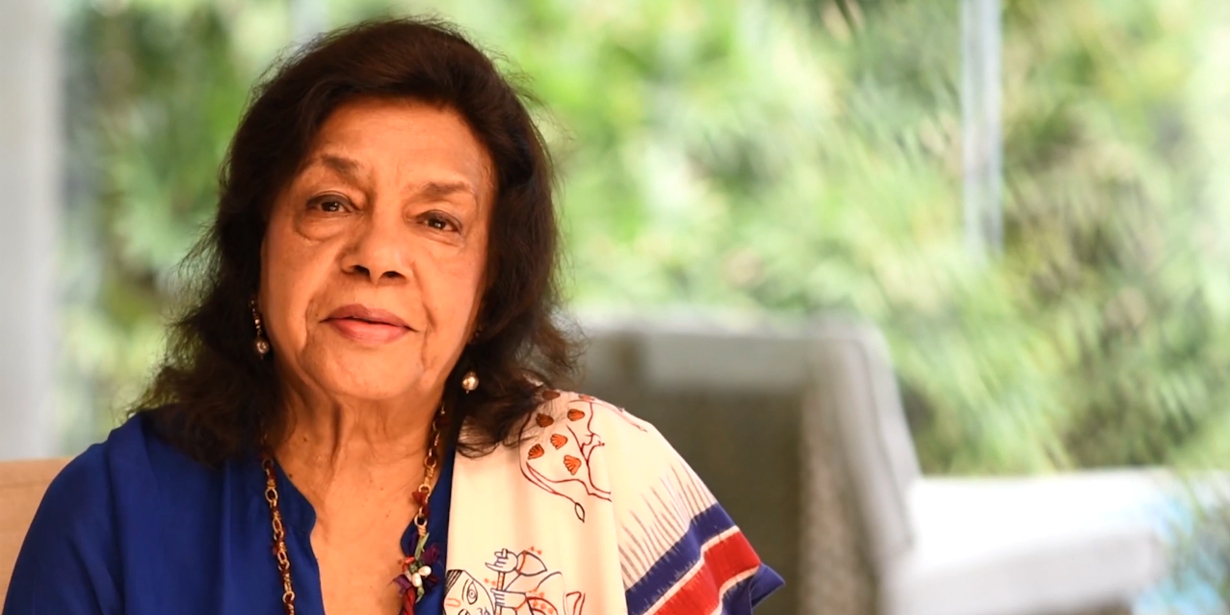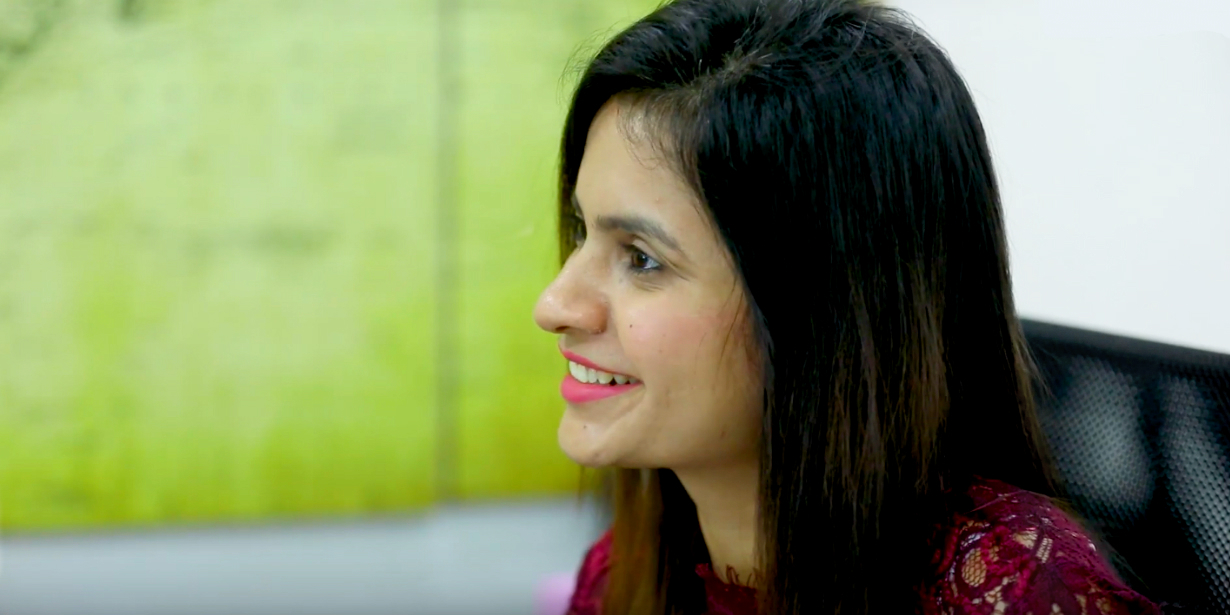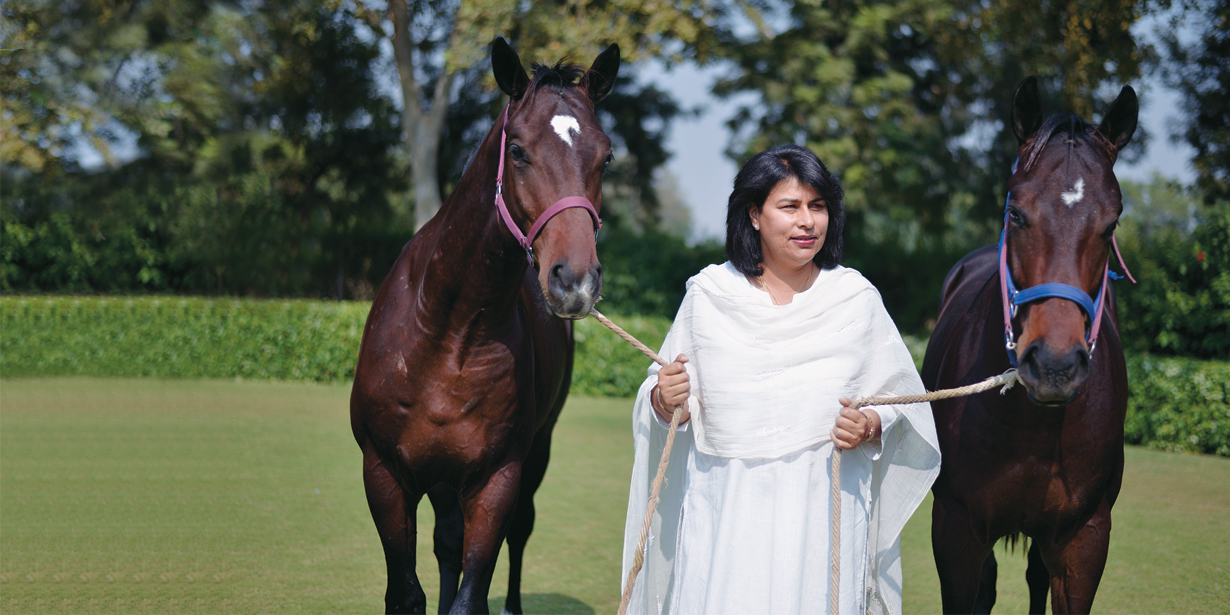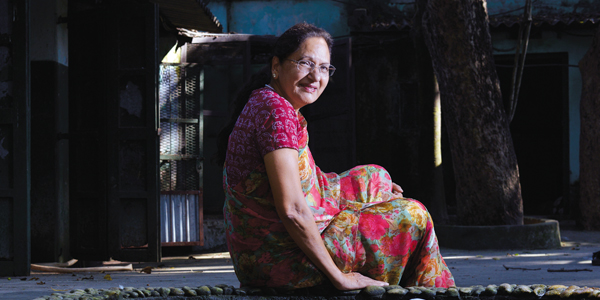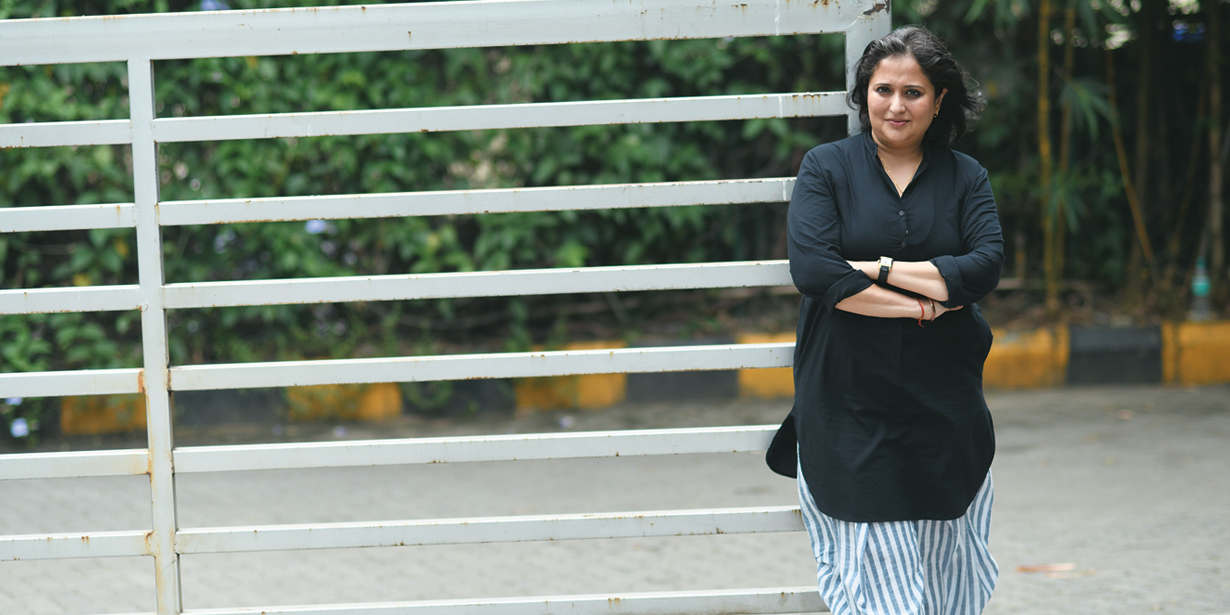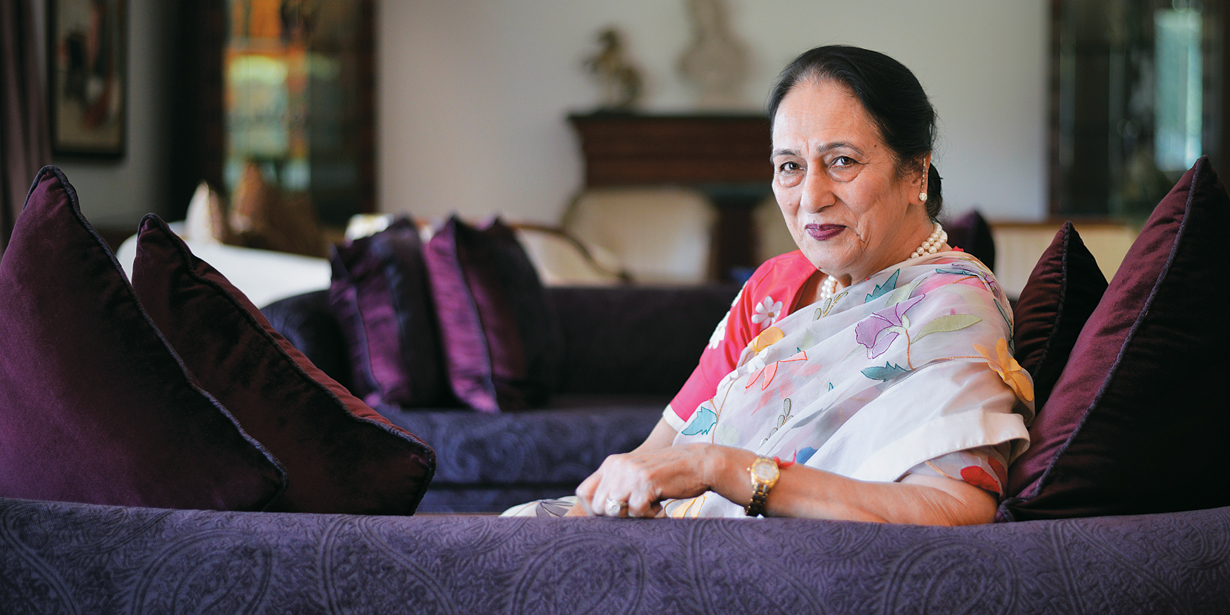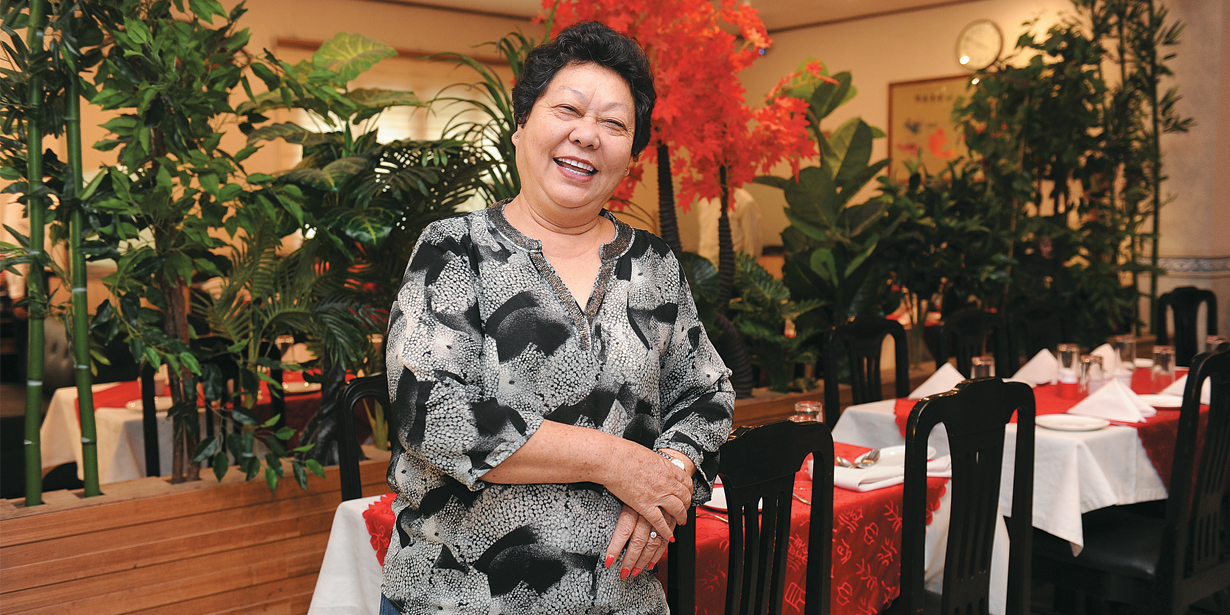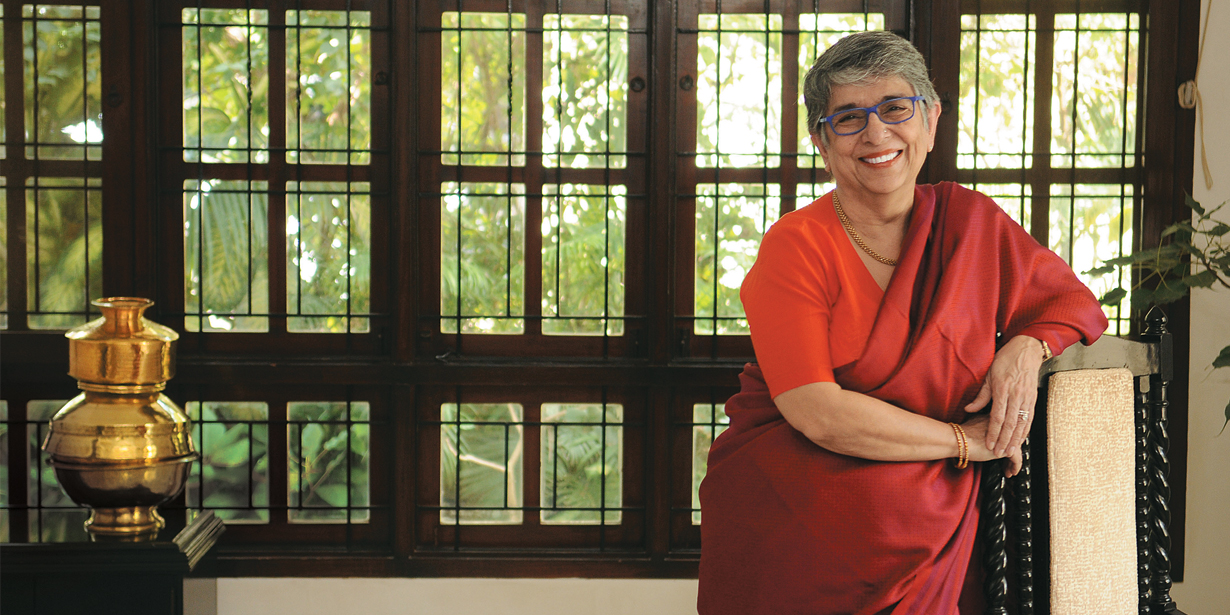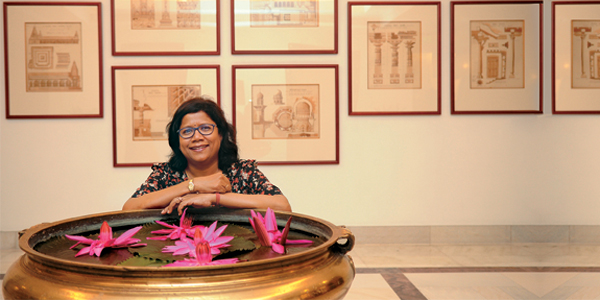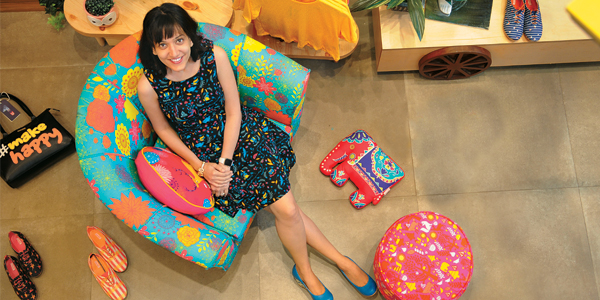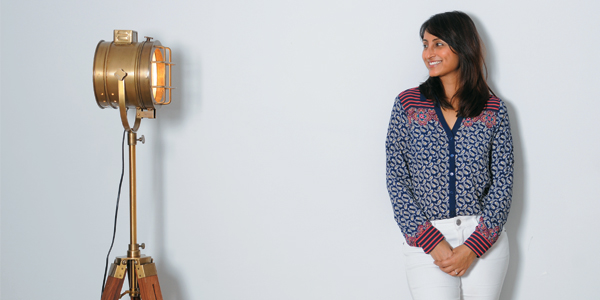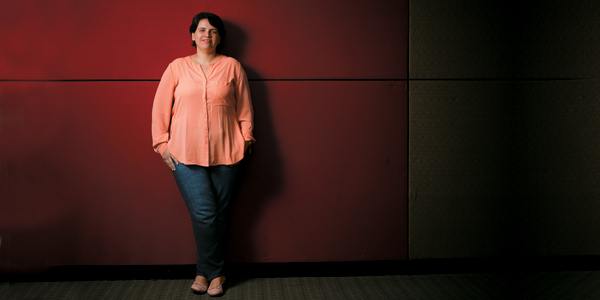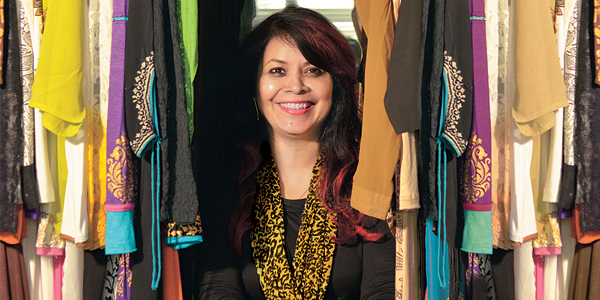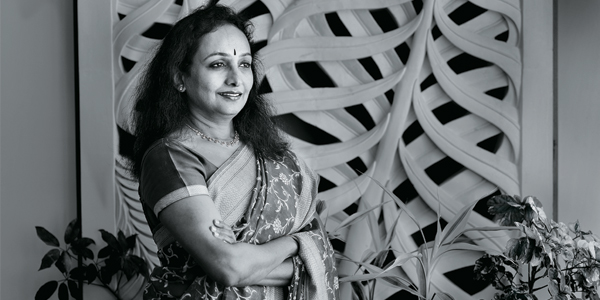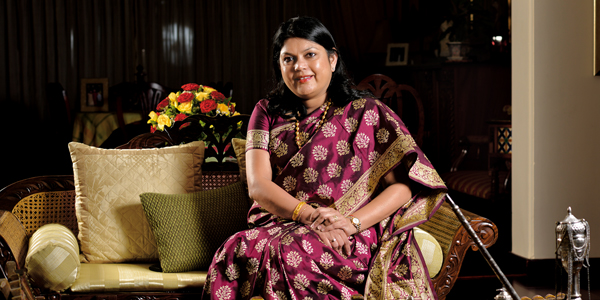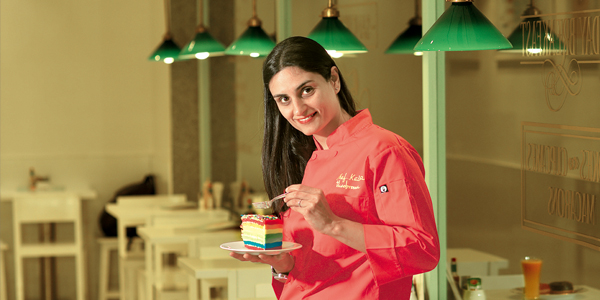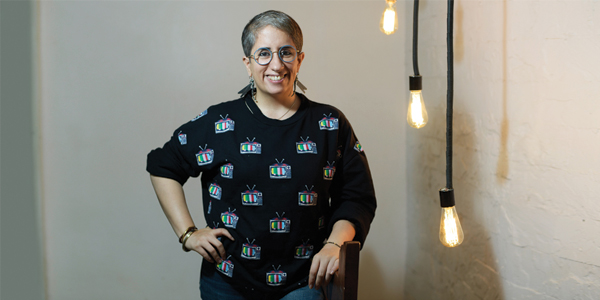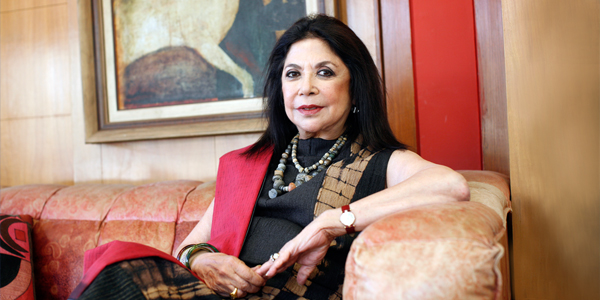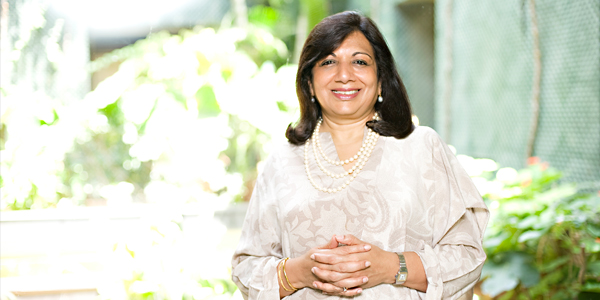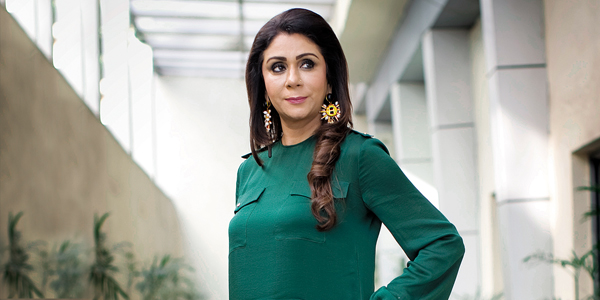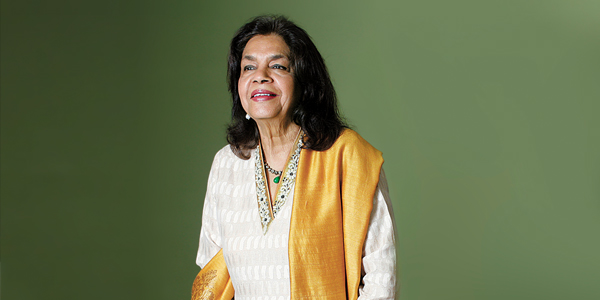Failing college might just be the best thing to happen to you, if you go by Baggit founder Nina Lekhi’s serendipitous story
Here’s how a setback in her early days spurred Nina Lekhi to create one of India’s most successful accessory brands, Baggit
As the founder of a brand as popular as Baggit, you would expect Nina Lekhi to be running on a tight schedule, with hardly any time for interviews. But unlike most entrepreneurs, Lekhi juggles work and media interactions with meditation sessions, cycling or swimming trips with her daughter. “What is the point of Baggit being worth Rs.400 crore or Rs.4,000 crore if I can’t spend time with my daughter and be happy?” she asks. It is this attitude that sets Lekhi apart from her peers. The perfect example of a woman with grit, determination and endless energy, 48-year-old Lekhi is just like the bags her brand makes — cool and trendy. Be it running Baggit, taking care of her daughter, attending silence camps or doing adventure sports, Lekhi takes on every responsibility with a smile and enthusiasm that is almost contagious. And it is all these qualities that helped her start the accessory brand 30 years ago and build it to what it is today — a Rs.75-crore company with 40 exclusive outlets and over 300 multi-brand stores in 128 cities across the country.
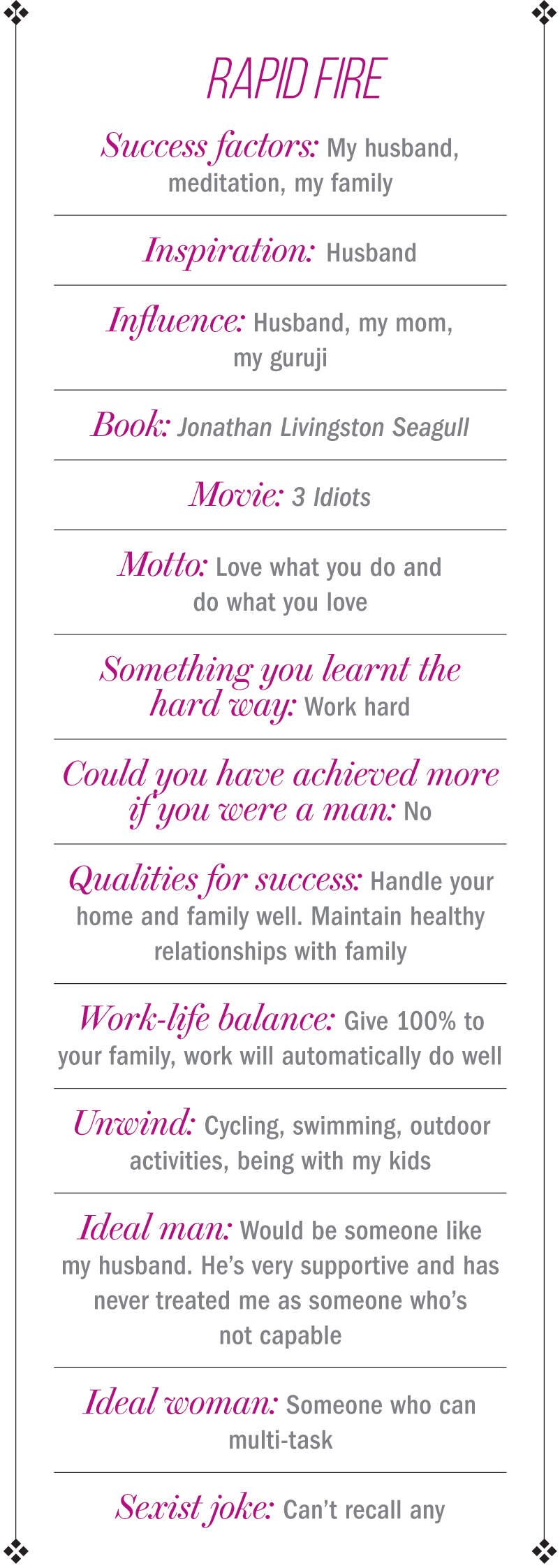 It all started with a jolt — one that Lekhi received when she failed the first year of her Arts course at Sophia Polytechnic in Mumbai. “For someone who has always been the teacher’s favourite, this came as a rude shock. And it was not a complicated programme where the course was very tough — it was a painting course. I got so caught up with enjoying college life that I failed my first year. That was when I started taking things seriously. I felt like I had to prove to myself and to the world that I wasn’t stupid,” Lekhi reminisces. With a year’s time in hand before she could give her exams again, Lekhi took up part-time courses — screen printing and interior design — at her college and two other part-time jobs as a salesgirl. It was in 1985 that she started making bags at home and selling them at stores, realising there was growing demand for trendy yet functional handbags. Given that the family was very protective of their only daughter, Lekhi’s parents supported her throughout.
It all started with a jolt — one that Lekhi received when she failed the first year of her Arts course at Sophia Polytechnic in Mumbai. “For someone who has always been the teacher’s favourite, this came as a rude shock. And it was not a complicated programme where the course was very tough — it was a painting course. I got so caught up with enjoying college life that I failed my first year. That was when I started taking things seriously. I felt like I had to prove to myself and to the world that I wasn’t stupid,” Lekhi reminisces. With a year’s time in hand before she could give her exams again, Lekhi took up part-time courses — screen printing and interior design — at her college and two other part-time jobs as a salesgirl. It was in 1985 that she started making bags at home and selling them at stores, realising there was growing demand for trendy yet functional handbags. Given that the family was very protective of their only daughter, Lekhi’s parents supported her throughout.
“I had a very secure childhood. My parents were always paranoid about sending me to birthday parties — and my friends’ birthdays were such that they went on till 3 am. My dad would stay up and wait on the balcony till his daughter was home,” Lekhi chuckles. “But they never stopped me from doing what I wanted to. They were okay with me working as a salesgirl and supported me as much as they could when I decided I wanted to make and sell bags,” she adds. Lekhi turned her bedroom into a factory, buying raw material from the market and taking the help of her building’s liftman and the watchman to cut and stitch it up. Little did she know that a stitching class that her mother had enrolled her into when she was younger would come in handy at this point. “We, as women, tend to learn a lot of skills that can come in handy at any time,” Lekhi says. One thing led to another, and before she knew it, she was selling her bags at small stores and exhibitions.
Twin obsessions
And Lekhi hasn’t slowed down since. With unwavering determination, she kept going — working, studying and making bags, all at the same time. “I was like an extremist at that point. During the week, I was in college from 9 am to 5 pm, then I’d go to work and simultaneously run my business. I even worked on Sundays. But on Saturdays, I would party till 5 in the morning,” Lekhi recollects. For most people, marriage is a transformational experience. It did change Lekhi’s life, too, but for the better — she married her long-time boyfriend Manoj at the age of 23. Having the right kind of partner and in-laws, Lekhi says, is really important for a woman.
“My mother-in-law never said beti jaa, roti banaa or ek cup chai lekar aao. My in-laws have always been very supportive. Most importantly, my husband has really helped me and my business grow. He has always told me not to hold back, to give it my all and do it for society. Do it so that you can contribute something to the world. This is the whole psyche behind my business, which I believe has really helped it flourish,” Lekhi says. Her business soon moved out of her bedroom into a space of her own. Lekhi also displayed and sold her bags at exhibitions that her husband set up, after which she began retailing from the Oberoi in Mumbai. After three years, the business grew big enough for Lekhi to rent a shop in Kemp’s Corner, which she bought over after five years. Interestingly, the name Baggit came out of a casual conversation that she had with her friend who was humming the-then popular Michael Jackson track Beat it.
Asked whether life would have been any different had she married someone else, she says, “Of course. If I was asked to do daily chores all the time and run the household, I would have never been able to build the brand.” But this does not mean family isn’t important for Lekhi. “Manoj asked me if I would leave everything after marriage if I had to and I said yes. Because honestly, if you don’t have your family with you, it doesn’t matter how much money you make.” It almost feels as if there are two persons inside of Lekhi — one that constantly breaks into giggles, talks about adventures, about partying and endlessly working to achieve one’s goal and the other that is philosophical, introspective and extremely calm. Apart from family support, finding inner peace has really helped Lekhi grow as a human being. What started as a tryst with a yoga and meditation camp during the couple’s youth has today become an integral part of her life.

“Manoj and I decided to attend the Siddha Samadhi Yoga camp with my mother-in-law and sister-in-law. It required us to wake up at 5 am every day and here we were, two individuals who were used to coming home with the milkman each morning after partying all night. In the beginning, we used to fall asleep while doing the shavasan each morning. But eventually, we got used to it,” Lekhi says. She now spends half her week in Katarkadak, a village near Pune that is nestled amid lush mountains and lakes, attending meditation camps — which her husband now runs — and spending time with her daughter, who studies in a school they built in the village. “Everyone in my office also goes for these camps. I insist that they do because you need to grow from within and when you take time out to do that, it gives you clues on how to deal with situations. More importantly, it ensures that we are all on the same level of thinking.”
The power within
According to Lekhi, being a woman has truly helped her in her entrepreneurial journey, though she admits that there are times when she felt like she wasn’t smart enough. “But honestly, it doesn’t matter. If you are hard-working and have integrity, which I believe women almost always do, you learn the tricks of the trade, like I did,” says Lekhi, who feels that women always think from their heart. “Baggit grew very organically. We never bothered advertising till about three years ago. I never expected it to become such a huge name. It was always about making sure the product and the quality are good. I guess those are basic intrinsic values everyone should have and I think women have it a lot more than men. Also, women have a kind of a gut feeling. They just know if something is right or wrong,” she adds. When it comes to hiring for the company, she has no qualms in saying she is biased towards women. Given a choice between equally deserving male and female candidates, she would prefer hiring women.
To a mother, nothing can ever be more important than her child, they say, and Lekhi agrees. Talking about challenges in running a business, Lekhi says women tend to have it a lot tougher in some ways — it is usually acceptable for a man to come back home at even 3 am and it might not even prick his conscience that he hasn’t spent time with his kids. But for a woman, especially Lekhi, it is almost as if you cannot function knowing your child is somewhere else and not with you. Lekhi fondly recalls the times when she used to carry her baby everywhere with her. “There were times when my daughter was very young and Manoj wasn’t available to take care of her and I couldn’t sit at home for too many days taking care of her — I had a business to run. So I would take her with me everywhere. I hung a bedsheet like a cradle in my office and put her there and fed her there,” she says. Lekhi also talks about how she would hit the gym with her child, place her in the centre of the room and jog around the room while watching over her.
Lekhi believes that women are excellent multi-taskers and says there is no concept of a work-life balance in her life. She believes in giving family 100% attention and thinks business will automatically do well. “My family knows they are my priority and nothing else is more important. So, when work beckons, they fully support me,” she says. Going forward, Lekhi has many plans for her business — she dreams of taking her business international and opening a store in Paris. Another dream Lekhi has is to create jobs in rural India, something she has tried before and wants to do on a larger scale. “Most jobwork is moving to China and hamare log bekar baithe hai (our people are jobless). I want to give them work. For most of rural India, work means going away from home, which is very sad. They may not earn as much as they would in cities but at least they will be living in their homes, with their families, breathing fresh air,” she says. Given Lekhi’s determination and love for what she does, it won’t take long before she achieves this goal, too.







